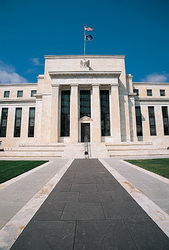Robust international travel helps power economic growth and commercial real estate through tourism dollars directly spent at U.S. hotels, resorts, stores, home purchases, attraction, and investment properties. That is the message to policymakers from the multi-industry VisitU.S. Coalition, which aims to safely and securely welcome more overseas travelers to the U.S. – who stay an average of 18 nights and spend approximately $4,360 at hotels, stores, restaurants and attraction properties on business and leisure trips. (VisitU.S. Policy Agenda)
 |
The multi-industry VisitU.S. Coalition aims to safely and securely welcome more overseas travelers to the U.S. – who stay an average of 18 nights and spend approximately $4,360 at hotels, stores, restaurants and attraction properties on business and leisure trips. ( VisitU.S.Policy Agenda ) |
Led by the U.S. Travel Association and the American Hotel and Lodging Association, the VisitU.S. coalition also includes The Real Estate Roundtable, U.S. Chamber of Commerce and the American Resort Development Association.
The Securities and Exchange Commission (SEC) this week became the fifth and final regulatory agency to advance possible reforms to the Volcker Rule, which aims to restrict proprietary trading practices at banks. The Federal Reserve became the first agency to move a proposal to simplify and ease the Volcker Rule forward last week, followed by the Federal Deposit Insurance Corp., the Office of the Comptroller of the Currency and the Commodity Futures Trading Commission. If adopted, this proposed revision is expected to enhance liquidity to commercial mortgage-backed securities (CMBS) markets. (Roundtable Weekly, June 1)
 |
SEC Chairman Jay Clayton |
The Volcker rule reform proposal will be a topic of discussion at next week’s Real Estate Capital Policy Advisory Committee (RECPAC) held in conjunction with The Roundtable’s Annual Meeting in Washington. The Roundtable plans to submit comments to the Agencies before a final rule is expected to be in effect by January 1, 2019.
Near-term optimism about commercial real estate market conditions are tempered by concerns over expected increases in interest rates and uncertainty about the effects of international trade tariffs, according to several recent economic and industry reports.
 |
The Federal Reserve is expected next week to raise its target interest rate above the rate of inflation for the first time in a decade. |
Economic policies that support economic growth will be a focus of discussion during next week's 2018 Roundtable Annual Meeting in Washington, DC, which will feature special guests such as House Majority Leader Kevin McCarthy (R-CA), House Ways and Means Chairman Kevin Brady (R-TX) and Senate Minority Leader Chuck Schumer (D-NY).